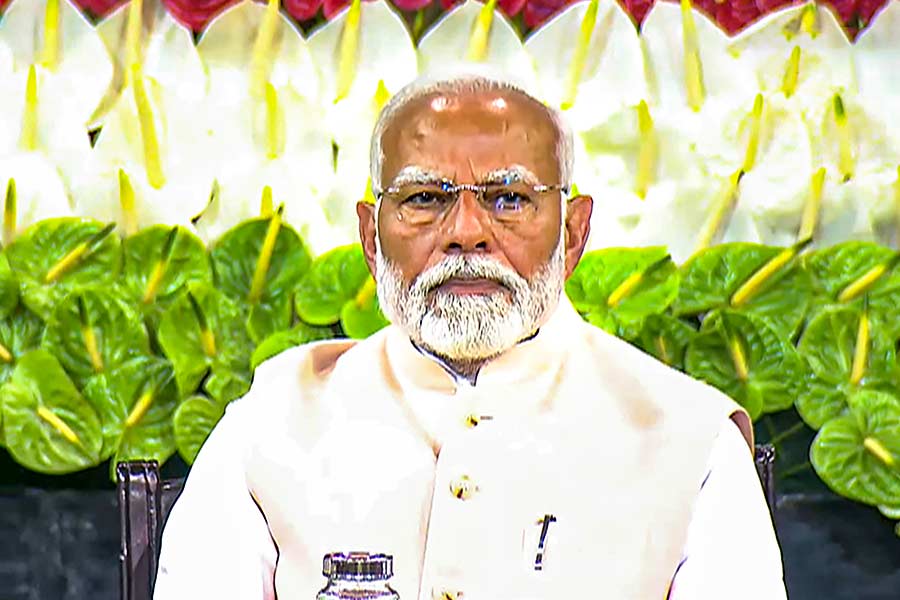As Prime Minister Narendra Modi was sworn in for a third time along with more than 70 ministers in the forecourt of Rashtrapati Bhavan on Sunday, his audience included the leaders of Bangladesh, Sri Lanka, Nepal, Bhutan, the Maldives, Mauritius and Seychelles. Missing were leaders from countries that Mr Modi had invited to his previous inaugurations in 2014 or 2019: Pakistan, Afghanistan and Myanmar. The 2024 guest list — both those who attended and those who were missing — is a reflection of the multiple neighbourhood challenges that Mr Modi’s government faces as it begins a term in which the prime minister’s ability to manage coalition allies will be tested not just domestically but on foreign policy too. Unlike 2014, when the then Pakistan prime minister, Nawaz Sharif, attended Mr Modi’s swearing-in, neither New Delhi nor Islamabad is holding its breath on any resumption of talks, even though Mr Sharif has sent a congratulatory message that has been responded to by Mr Modi. Also on the list of non-invitees were Myanmar and Afghanistan, both ruled today by undemocratic regimes that democratic India has been warming up to but New Delhi cannot embrace too publicly. Then there is the Maldives whose president, Mohamed Muizzu, recently booted out a small contingent of Indian troops from the archipelago and who came to power on an anti-India campaign. He was nonetheless invited because New Delhi cannot afford to lose Malé to Beijing.
Managing ties with China, of course, remains India’s toughest geopolitical task. One of India’s largest trading partners, China is also competing — and by some accounts edging — New Delhi for influence in their shared neighbourhood. The two Asian giants have also been locked in a tense border standoff since 2020. Now heading a coalition government, Mr Modi and his team might find it harder to try and weaponise foreign policy for domestic political gains, as has been its wont, by accusing previous governments of being soft on Pakistan and China and hostile to Israel because of a keenness to woo Indian Muslim voters. Both the Telugu Desam Party and the Janata Dal (United), the two allies the Bharatiya Janata Party now depends on to stay in power, tout their secular credentials and count Muslim voters among their support bases. They have also been part of previous national governments. How India’s new coalition government balances its foreign policy priorities with domestic politics might well shape the country’s diplomatic path ahead.










